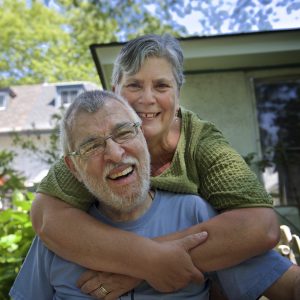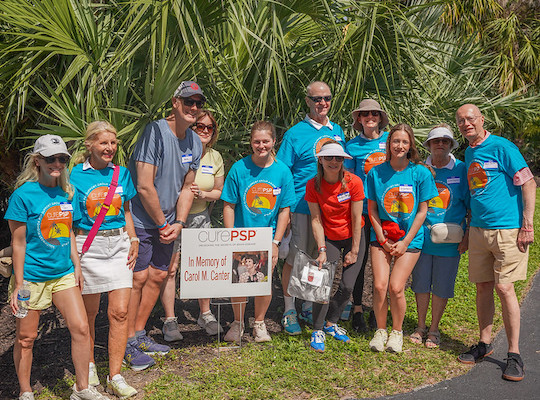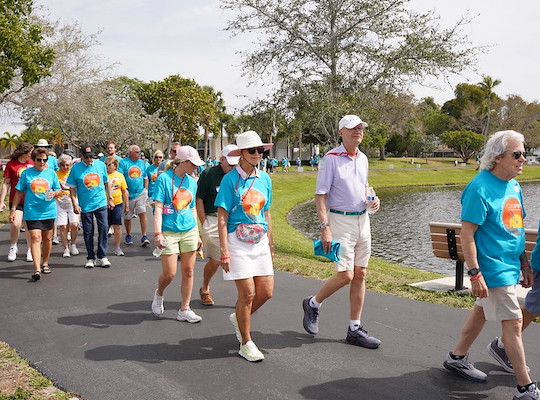Make Meaning to Stay Positive
Nov 10, 2017 By Lucas Metherall
November is carepartner month, so we will run a series of articles taken from our new Guidebook on caregiving. For all of you heroes out there, we are thinking of you.
By Janet M. Edmunson, MEd
Taken from her book, Finding Meaning with Charles, and used with permission.

It wasn’t until about the third year of Charles’s disease that the Serenity Prayer had its greatest impact on me. But I have always loved it, and it means the most to me when I am going through tough times: “ . . . grant me the serenity to accept the things I cannot change, courage to change the things I can, and wisdom to know the difference.”
I have really latched onto the concept of “accepting the things I cannot change.” Though we tried to fight it, Charles’s disease was going to take away his abilities, and eventually, his life. Our choice was to accept that or deny it.
I don’t know for sure what Charles’s choice was. He was determined not to let the disease change his life and goals. He tried hard to keep contributing as best he could. That was how Charles tackled everything in life. He denied the obstacle and set out to conquer it. He wouldn’t succumb. He fought all the way to the end.
Is that acceptance or denial?
I, however, consciously chose to accept it and make the most of it.
My greatest learning through this experience came when Charles and I attended the Mind/Body Medical Institute program which, at the time, was held at Beth Israel Deaconess Hospital in Boston. The instructor, Peg, talked about acceptance, explaining that the way to accept the things that we have no control over, such as an illness, is to make meaning out of it. Wow! Make meaning out of it! Her explanation suddenly allowed me to consciously look at what Charles and I were going through and identify where it helped us grow and where it allowed us to have an impact on others that we wouldn’t have had without the adversity of his disease.
Taking a proactive approach to making meaning out of our situation helped me to positively focus on the opportunities and not plunge into depression. I was determined to help Charles reach whatever potential his life could give. And I was amazed to see how Charles became even more influential – even after he could no longer talk. As a caregiver, I found it important to focus on this greater purpose. My goal for caregiving went beyond making sure Charles was safe and physically cared for. I wanted to ensure that he still lived life to the fullest whatever degree the disease would allow.
Accepting Charles’s disease and making meaning out of it didn’t mean that we didn’t feel pain. Coping with this type of degeneration was difficult physically and emotionally for Charles, the person with the disease, as well as for me, the caregiver. We faced many trials – some successfully, others not. But we both became better people through experiencing his disease.
- Scott Peck starts his book, The Road Less Traveled, with the sentence “Life is difficult.” He goes on to explain that once we accept this, we can begin to make the most of life. Charles and I had discussed this concept a number of times when we faced problems at work or with other people. The misfortune of his disease forced us to face our greatest life difficulty, truly testing our ability to accept adversity and then move on.
I don’t know of anyone who expressed this thought better than Viktor Frankl in his book, Man’s Search for Meaning. Frankl survived the atrocities and indignities of a concentration camp in World War II.
He realized there that to renew our inner strength, we need to have a future goal. He quoted Nietzsche’s words, “He who has a why to live for can bear with almost any how.” I found that “finding meaning” is a way to define the why. The act of looking for and finding meaning in Charles’s disease focused and empowered me.
Join our email list
Get the latest news and resources
directly to your inbox.
Get the latest news and resources directly to your inbox.
Sign Up

.jpg)

